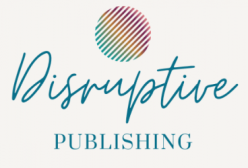
Most of us grew up being told that being disruptive was a bad thing and we were made to feel shame for being disruptive.
Children are taught that being disruptive is generally not acceptable behaviour, especially in the context of a classroom or other learning environments. Basically, behaving in any way that interrupts the learning process, such as talking out of turn, being loud, or distracting other students is considered bad behaviour.
We then grow up believing that being well-behaved, attentive, and respectful of others is a good thing, and it is.
But sometimes people and things need to be disrupted. Sometimes being quiet and ‘keeping the peace’ is actually more harmful, and being a Disruptive Author can bring about positive change in the lives of anyone we reach with our writing.
What does it mean to be a disruptive author?
The term “disruptive” generally refers to something that interrupts the normal flow or progress of something else, often, but not always, in a radical or unexpected way.
In the context of literature or creative arts, being disruptive often involves challenging established norms and conventions, pushing boundaries, and experimenting with new forms and styles in order to create works that are original, thought-provoking, and sometimes controversial.
Disruptive Authors often use their work to bring attention to important social, political, or environmental issues and to inspire change. By pushing boundaries and challenging established norms and conventions, authors can motivate readers to think critically about the world around them and to take action to address pressing issues.
By experimenting with different narrative structures, themes, or genres, Disruptive Authors can inspire innovation and creativity which can lead to new and exciting possibilities.
Disruptive Authors can also offer fresh perspectives on familiar topics, by offering alternative viewpoints and challenging readers’ assumptions. This can help readers to broaden their horizons and gain a deeper understanding of complex issues.
In a crowded literary market, being disruptive can help an author stand out from the competition and attract attention to their work. By offering something new and innovative, authors can capture readers’ attention and create a buzz around their work.
And finally, being disruptive can allow authors to express their individuality and creativity, by breaking free from traditional constraints and exploring new possibilities in their own writing. This can help authors to establish their own unique voice and style, and to create works that truly reflect their own experiences and perspectives.
Being disruptive can be seen as a positive or negative trait, depending on the context and the observer’s perspective but at Disruptive Publishing, we tend to see it as a positive thing.
Here are some signs that you are a Disruptive Author:
- Reader reactions: If readers respond to an author’s work with surprise, shock, or interest, it may be an indication that the author is disrupting their expectations and challenging established norms.
- Reviews and critical response: If reviewers and critics consistently describe an author’s work as innovative, unconventional, or thought-provoking, it may be an indication that the author is being disruptive.
- Recognition and awards: If an author’s work receives recognition or awards for its originality or innovation, it may be an indication that the author is being disruptive.
- Comparison to other writers: If an author is frequently compared to other disruptive writers, or if their work is seen as part of a larger movement of disruptive literature, it may be an indication that the author is being disruptive.
- Personal goals and intentions: Finally, an author may know if they are disruptive by considering their personal goals and intentions in writing. If an author deliberately sets out to challenge established norms and conventions in literature, or to address important social, political, or environmental issues, it may be an indication that they are being disruptive.
Overall, being a disruptive author is not necessarily about meeting a specific set of criteria or achieving a certain level of recognition, but rather about pushing boundaries and challenging established norms in order to create original and innovative works that inspire thought and provoke change.
If you value the idea of inspiring positive change in the world around you, then you are, at heart, a Disruptive Author and we are very happy to be keeping you company on your author journey.
If you would like some company and some support on your journey, join us in the FREE 30 Day Book Writing Challenge. We’d love to find out more about you.
